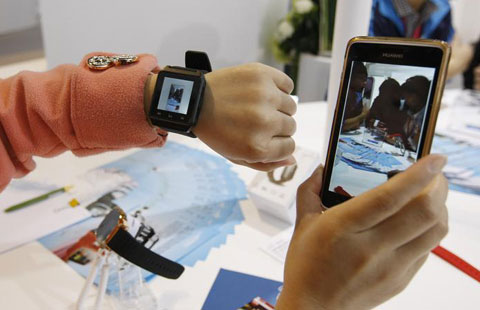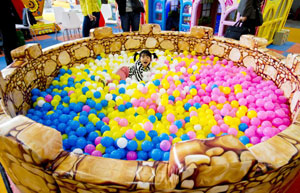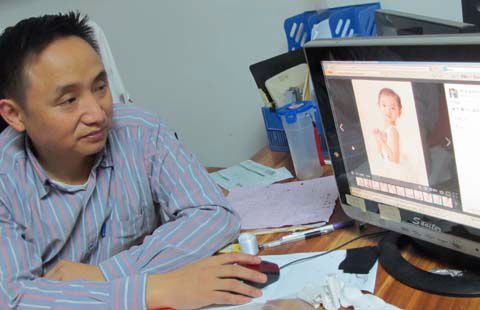Self-taught chef cooks up good sales
By Huang Zhiling (China Daily) Updated: 2014-04-28 15:37Li had a strong sense of pride in always being punctual with work. Once, fearing he would arrive late, he took a taxi. But when that was caught in traffic he got out and paid a tricycle rider and then a motorcycle rider to get him nearer to work.
"When I reached the restaurant I was well in time. Had I been late I would have been fined 5 yuan, but the taxi, tricycle and motorcycle fares combined were more than 30 yuan."
In 2006 Li became the executive chef of Daronghe La Defense.
Chengdu Daronghe Restaurant Management Co Ltd has 32 Daronghe restaurants all over China and nearly 10,000 employees," says Liu Yu, assistant to the company's chairman.
"Its annual sales exceed 1 billion yuan. Li created many of the restaurant's best-known dishes."
One such dish is made of fish cooked with potato noodles, green capsicum, green peppercorn, ageratum leaves and leek.
"Since it was created in 2005 its sales have surpassed 10 million yuan in the 11 Daronghe restaurants in Chengdu each year," Li says.
Creating new dishes has been the best thing in his job, he says.
In 2012 he was appointed general manager of Daronghe La Defense, and he owns 10 percent of the restaurant's shares, he says.
At Daronghe la Defence he met his wife, Yu Jie, now 28, who was a receptionist there. They have two sons, aged 7 and 3.
In 2010, Li bought a 130 sq m apartment in Chengdu for 900,000 yuan.
Unlike many other parents, Li says, he plans to send his children to ordinary primary schools and high schools, rather than paying for private education, which he could afford. A boy has to rely on hard work rather than on his parents to succeed, he says.
"I would leave only 10 percent of the family fortune to my sons and might donate the rest if one day I have to make a decision about the family fortune."
Li says his generation of chefs was different from the older generation.
"Old chefs smoked cigarettes and drank liquor while cooking dishes. Cigarette ash would fall on pots. Chefs of my generation are more disciplined, and chefs of the newer generation are not as hard-working as those of my generation."
Chefs' working conditions have improved greatly, he says. When he was a starter, it was common to see kitchens flooded with water. As he trudged through it wearing cloth shoes his mother made for him, his feet became extremely white after he stood in the water every day.
"But kitchens in many restaurants are very clean. Chefs' leather shoes will never be wet no matter how long they work there."
Li says he does not smoke or drink, and his only hobby is fishing. As he has to work from 9 am to 10:30 pm every day, he can go fishing only once or twice a year.
He is confident about the future of his restaurant which is frequented by an increasing number of white-collar workers, he says.
"Last year, sales totaled 55 million yuan. My goal this year is 60 million yuan. Chinese are better off these days, and the catering industry is much bigger than it was 10 years ago. It is a good time to be running restaurants."
Ten years ago a chef's average monthly wage was 2,000 yuan, and now it is 5,000 yuan, Liu says.
Li dreams of stepping down as a general manger in 10 years. "As a chef, I dream of more time to invent more new dishes. I am a chef first and then a general manager."
- In education, vocation is lesson
- The dream and reality for young Chinese workers
- Industrial profits rebound in March
- Insurance industry struggles to attract recruits
- Stop pork from becoming easy meat
- State Information Center forecasts 7.4% Q2 growth
- Rent a ZINORO 1E for a greener life electric drive
- Leasing plays little role in world's largest market

















